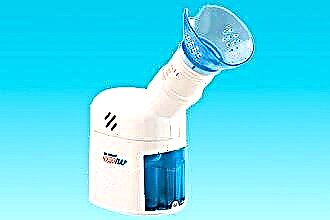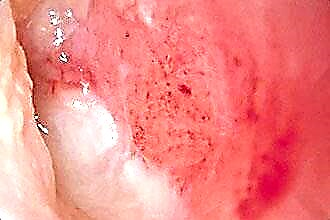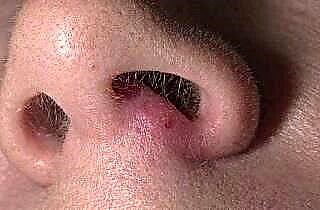Laryngotracheitis is an inflammatory process that occurs in the pharynx and trachea. Most often, the disease develops against the background of weakened immunity, hypothermia, viral or bacterial infection. Laryngotracheitis usually does not pose a danger to life in adults, the exceptions are cases when the disease is accompanied by stenosis of the larynx. Depending on what caused the disease, and what symptoms accompany it, determine how to treat laryngotracheitis.
Causes and symptoms of the disease
There are many reasons that can trigger the development of laryngotracheitis. The most common factor is a viral infection, most commonly parainfluenza. Less commonly, laryngotracheitis can occur as a result of bacteria entering the body, for example, streptococcus or staphylococcus. Allergies can also cause the development of the disease.
There are a number of factors, the impact of which on the human body provokes the development of laryngotracheitis:
- inhalation of highly dusty air;
- excessive load on the vocal apparatus (loud screaming, prolonged speech, singing);
- smoking, alcohol abuse, which causes dry throat;
- severe hypothermia of the body, which can significantly reduce the protective functions of the body.
The most common cause of laryngotracheitis is an inflammatory process localized in the trachea and larynx. The main signs of the disease are:
- hoarseness, sore throat, with the development of the disease, a complete loss of voice is possible;
- dry, barking, annoying cough;
- swelling of the mucous membranes of the pharynx, which provokes difficulty breathing.
The main signs of laryngotracheitis are joined by the symptoms of another infection, viral or bacterial, that caused the disease: fever, rhinitis, headache, general weakness, and fatigue.
Important! Often, as a complication of laryngotracheitis, stenosing laryngotracheitis (false croup) can develop, accompanied by noisy breathing and a dry, annoying cough.
Treatment
 Treatment of laryngotracheitis should be comprehensive. First of all, the patient must observe voice and bed rest, especially in autumn or winter, when the likelihood of hypothermia, the addition of another infection and the development of complications increases. It is also important to observe the climatic regime in the room: the optimal temperature and humidity in the room should be at the level of 18-20 degrees and 50%, respectively. To achieve the desired conditions, you can open the window, carry out wet cleaning, hang wet sheets around the room, use a humidifier.
Treatment of laryngotracheitis should be comprehensive. First of all, the patient must observe voice and bed rest, especially in autumn or winter, when the likelihood of hypothermia, the addition of another infection and the development of complications increases. It is also important to observe the climatic regime in the room: the optimal temperature and humidity in the room should be at the level of 18-20 degrees and 50%, respectively. To achieve the desired conditions, you can open the window, carry out wet cleaning, hang wet sheets around the room, use a humidifier.
Also, when treating laryngotracheitis, it is important to follow the correct diet: exclude spicy, salty, solid, very hot or cold foods, and you also need to give up alcoholic and carbonated drinks. Warm, mushy food should be preferred. With laryngotracheitis, to moisturize the pharyngeal mucosa and relieve cough, an abundant drink is indicated (tea, herbal decoctions, mineral water such as Borjomi or Polyana Kvasova).
Medical treatment of laryngotracheitis is based on relieving the main symptoms of the disease, and also aimed at eliminating the cause that caused the disease.
- If the cause of the disease is a viral infection, complex treatment includes the use of antiviral agents (Groprinosin, Amizon, Rimantadin). To combat bacterial infection, antibiotics should be used (Augmentin, Sumamed).
- To reduce sore throat, special preparations are used (sprays, lozenges, lozenges), which have not only an anti-inflammatory and antiseptic effect, but also have an anesthetic effect.
Important! The use of sprays is contraindicated in patients prone to bronchospasm or laryngeal spasm.
- With laryngotracheitis, inhalations are shown using alkaline solutions (mineral water or baking soda solution at the rate of 5 grams of substance per liter of boiled water).
- If the disease is accompanied by a fever, antipyretics based on paracetamol or ibuprofen are used.
- With severe swelling of the pharyngeal mucosa, as well as with a predisposition to allergies, the use of antihistamines is indicated (Zodak, Loratadin, Suprastin).
- If the disease is not accompanied by excessive production of a viscous secretion, antitussive drugs (Sinekod, Stoptusin) are used to reduce a dry, painful cough.
- If laryngotracheitis proceeds with the release of thick, viscous sputum, the complex treatment includes drugs with mucolytic and expectorant effects (Ambroxol, Erespal, ACC).

- If the disease is accompanied by severe swelling of the mucous membrane and spasm of the larynx, it is necessary to use injections or inhalation of hormonal drugs (Prednisolone) to reduce edema, as well as use antispasmodics (No-Shpa, Papaverin, Eufelin).
- If the disease has become chronic, then the treatment should be supplemented with immunomodulatory drugs (Bronchomunal, Immunal), vitamin complexes.
- If drug treatment does not give a positive result in the treatment of the chronic hypertrophic form of laryngotracheitis, surgery is performed (removal of neoplasms in the larynx, excision of excess tissue) by the endoscopic method using microsurgical approaches.
Important! It is necessary to closely monitor the patient's condition. At the first signs of shortness of breath and oxygen deficiency, you should immediately consult a doctor.
Folk remedies
In the complex therapy of laryngotracheitis, the use of not only drug treatment is shown, but also the use of folk remedies and methods of treatment.
- Gargling with laryngotracheitis allows you to get a pronounced antibacterial effect, moisturize the throat mucosa. The rinsing procedure can be carried out up to six times a day using decoctions of medicinal herbs (chamomile, sage, calendula), soda-salt solutions (a teaspoon of salt and soda per 200 ml of warm boiled water). To restore a shrunken voice, rinse with freshly squeezed cabbage juice is used.
- Steam inhalation and inhalations with a nebulizer at home are also indicated in the treatment of laryngotracheitis. In the first case, the water is brought to a boiling point, salt and soda are added in proportions as in the recipe for rinsing, if there is no allergy, a few drops of aromatic oil (eucalyptus) are added and warm steam is inhaled, bending over the container and covered with a towel. The procedure is carried out for ten minutes five to six times a day until the cough disappears completely. If there is a nebulizer, then alkaline inhalations with mineral water, saline are carried out.

- Local warming compresses (a hot water bottle filled with hot water) reduce muscle spasm, help thin the viscous secretion, and improve blood circulation in the pharyngeal region. It is best to carry out such procedures before bedtime.
- Mustard foot baths are also an effective procedure in the treatment of laryngotracheitis, having a high anti-inflammatory effect when used regularly.
- In chronic laryngotracheitis, garlic should be consumed to increase immunity and suppress pathogenic microorganisms.Drinking plenty of chamomile broth, warm milk with honey also help to increase immunity and reduce inflammation.
- Among the effective methods of treating laryngotracheitis and other diseases of the nasopharynx, onion-based recipes are used. Onions contain a large amount of useful substances - phytoncides. Onion inhalation is used: the onion is peeled and chopped, after which, bending over the container with the onion, take several deep breaths. Onion broth also retains all the beneficial properties of this vegetable. It is not difficult to prepare it: you need to finely chop a small onion, grind it with 10 grams of sugar and pour 200 ml of water. Bring the mixture slowly to a boil and cook until thickened. Drink one teaspoon every hour.
- Honey has long been known for its beneficial properties in the treatment of throat ailments. Therefore, there are a large number of recipes for honey-based laryngotracheitis therapy.
To reduce inflammation and sore throat, you can mix 50 grams of honey and 250 ml of carrot juice - this mixture is consumed in small sips in several steps.
The honey-ginger mixture is also an excellent treatment for laryngotracheitis. To do this, you need to take 100 grams of ginger root grated on a fine grater and pour 300 grams of honey on it. Boil the mixture for five minutes, stirring constantly. The resulting product can be added to tea and consumed before bedtime.
- Black radish juice is effectively used for the treatment and prevention of laryngotracheitis. To obtain juice, you need to wash the radish, cut off the top of it, and make a depression. Put a teaspoon of honey in the resulting cavity and remove the radish in a cool, dark place. After a while, the radish will give off juice mixed with honey. As you use it, you need to add honey. It is necessary to use such a remedy regularly.
- Medicinal herbs are also effective in the complex treatment of laryngotracheitis. A decoction of St. John's wort has proven itself well. It is not difficult to prepare it, for this they grind the dried herb of St. John's wort and brew it at the rate of a glass of boiling water for six tablespoons of grass. Insist the broth in a thermos for several hours. Then consume two tablespoons half an hour before meals. According to the same recipe, you can prepare a decoction of plantain leaves, wild rosemary and oregano, which will also be useful for the treatment of laryngotracheitis.
- A decoction of garlic can be used to treat diseases of the pharynx. For this, five cloves are cleaned and crushed, mixed with 300 ml of milk. The resulting mixture is boiled. The cooled broth is consumed in 5 ml, regardless of food intake, every four hours.
- Apricot kernels are effective in treating cough in laryngotracheitis. Before use, they must be cleaned from the film, dried and rubbed. The resulting powder is added half a teaspoon to hot tea or milk, mixed well and consumed daily three times a day.
In order to avoid frequent diseases of laryngotracheitis, it is necessary to carry out disease prevention. For this, it is necessary to timely and correctly treat acute and chronic diseases of the nasopharynx organs. It is necessary to avoid excessive stress on the body, vocal cords, to prevent hypothermia.





